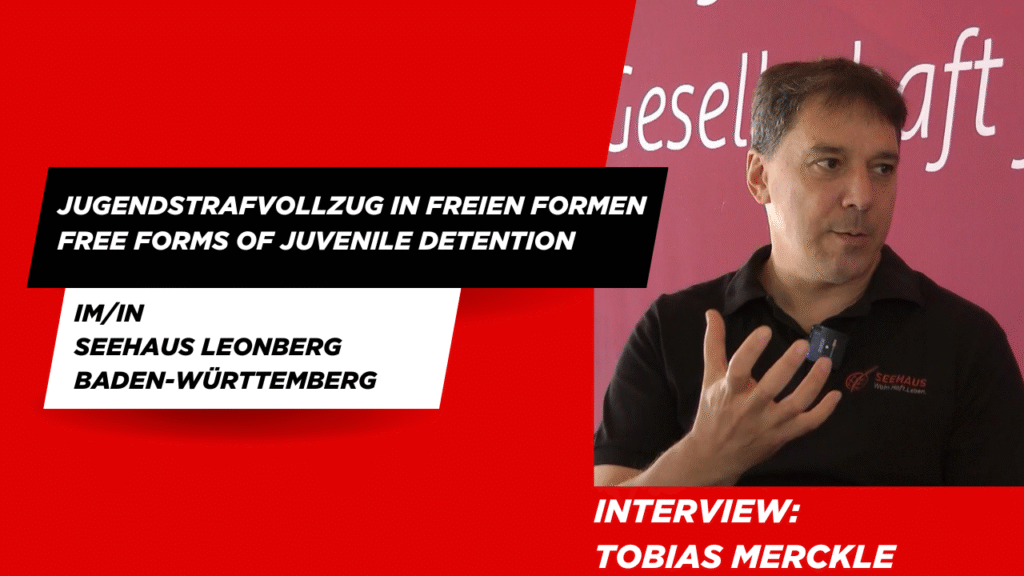Previous Article
News
The CEP Study of knowledge of, and attitudes, to mental illness, in European probation services
The prevalence of mental health disorders in probation is much higher than in the general population. Indeed, two robust studies have estimated that mental health disorders affect 40% of the probation population (Brooker et al, 2012; Lurigio et al, 2003). Suicide is also more prevalent within probation populations than both prisons and the general population (Philips et al, 2018).
Background
 This study in England showed that suicide rates also vary by gender. The rate per 100,000 of the population for men 105 and for women 145 (this compares with respectively 5.6/100,000 and 29.2/100,000 for men and women in the general population). There are, therefore, compelling reasons why probation staff should be able to recognise mental health disorders and refer on appropriately to community-based mental health services or even refer to acute psychiatric care. In one of the prevalence studies cited above (Brooker et al, 2012) the probation records of those identified with a mental health disorder were examined. The research showed that probation staff recognised 64% of mood disorders; 37% of anxiety disorders; 36% of psychotic disorders and 10% of likely personality disorders. Staff, however, were much better at recognising alcohol and drug use (identifying 88% and 77% of these respectively). Perhaps the especially worrying aspect of these findings is that only one-third of psychosis cases were recognised. It is difficult to know whether these findings would be replicated across the 47 Countries/ Jurisdictions of Europe. However, we do know from recent research in Ireland (Power, 2020) that when asked to make estimates of those people on probation caseloads with a mental health disorder, staff struggle:
This study in England showed that suicide rates also vary by gender. The rate per 100,000 of the population for men 105 and for women 145 (this compares with respectively 5.6/100,000 and 29.2/100,000 for men and women in the general population). There are, therefore, compelling reasons why probation staff should be able to recognise mental health disorders and refer on appropriately to community-based mental health services or even refer to acute psychiatric care. In one of the prevalence studies cited above (Brooker et al, 2012) the probation records of those identified with a mental health disorder were examined. The research showed that probation staff recognised 64% of mood disorders; 37% of anxiety disorders; 36% of psychotic disorders and 10% of likely personality disorders. Staff, however, were much better at recognising alcohol and drug use (identifying 88% and 77% of these respectively). Perhaps the especially worrying aspect of these findings is that only one-third of psychosis cases were recognised. It is difficult to know whether these findings would be replicated across the 47 Countries/ Jurisdictions of Europe. However, we do know from recent research in Ireland (Power, 2020) that when asked to make estimates of those people on probation caseloads with a mental health disorder, staff struggle:
‘Based on the significant gaps in the data gathered, assessing mental health functioning and asking relevant questions, making appropriate referrals and working effectively with mental health professionals require additional skills training and guidance for Probation Officers. It is unlikely that general Probation Officer training provides enough assessment skills or information for Probation Officers to be confident when making referrals’
Some examples of training initiatives exist, for example, there have been reports of probation staff being trained over five days to make formulations of people with personality disorder (Brown et al, 2018). In the United States a variety of training programmes have been delivered to equip staff for the role of the specialist mental health probation role (Deinse et al, 2021). In a recent systematic review Sirdifield and her colleagues conclude that there should be an imperative to consider training in suicide prevention (Sirdifield et al, 2021):
‘We have argued elsewhere that the lack of training for probation officers in either mental illness or substance misuse means that mental health issues are often missed by offender managers. We strongly suspect that suicidal ideation is hard to identify without specific education in this aspect of mental health We identified that offender managers only recognised 64% of cases with depression and 36% of those with psychotic disorders in a large community random sample of probationers formally identified with a mental health disorder (Brooker et al., 2012).
To conclude, there is strong evidence for high levels of the prevalence of mental health disorders amongst probation populations. This is not an area comprehensively addressed in probation staff’s preparatory training. Thus, cases of mental health disorder are frequently missed and referral to the appropriate agency does not occur. This project seeks to improve this situation in a pilot involving different countries in Europe. In the study assessments will be made of probation staff’s knowledge of mental illness and their attitudes to mental illness. This baseline exercise is an essential first step to take in improving knowledge about mental health disorders in probation services.
The project, as described here, was discussed at the last meeting of the CEP mental health sub-group held in Lisbon on April 6th 2022. The group supported the study.
What will happen next?
 All probation staff across Europe will be asked to complete a ‘knowledge’ and attitudes’ questionnaire. The study will run from September 19th 2022 for four weeks. Each of the participating probation services will be asked to share an online survey prepared by the research team to all staff for completion. An email will be sent out on September 5th 2022 to understand which countries/jurisdictions want to take part. The survey will be anonymous and ask questions about the individual, including length of employment in the service and training, followed by the full set of questions from the mental health literacy scale. The questionnaires will be in English only so this might restrict some staff’s participation. All data will be held securely on the UK Universities online survey website until the research end date and then downloaded for analysis. A report on the findings will be ready for January 2023.
All probation staff across Europe will be asked to complete a ‘knowledge’ and attitudes’ questionnaire. The study will run from September 19th 2022 for four weeks. Each of the participating probation services will be asked to share an online survey prepared by the research team to all staff for completion. An email will be sent out on September 5th 2022 to understand which countries/jurisdictions want to take part. The survey will be anonymous and ask questions about the individual, including length of employment in the service and training, followed by the full set of questions from the mental health literacy scale. The questionnaires will be in English only so this might restrict some staff’s participation. All data will be held securely on the UK Universities online survey website until the research end date and then downloaded for analysis. A report on the findings will be ready for January 2023.
Timetable 2022
June/July Solicit interest in participation in the study using the MH group at first.
August Holiday period
September 5th Email sent out to establish interest in each country/jurisdiction
September 19th Send out electronic survey link to each country/jurisdiction that wishes to participate
October 3rd Send out a reminder to participant countries
October 17th Survey closes
November/December Collate the data and analysis
2023
January Submit final report to CEP

The measures to be employed
Knowledge of, and attitudes to, mental illness will be assessed using the Mental Health Literacy Scale (MHLS) developed by O’Connor and Casey (2015). The scale includes 15 ‘knowledge’ items and 20 ‘attitude’ items. The MHLS was included in a systematic review of mental health literacy scales world-wide. It outperformed most of the 16 other measures that were included in the final review. It was independently assessed to have strong evidence for internal consistency and content validity and moderate evidence for reliability (Wei et al, 2016). The scale can be obtained from Charlie Brooker along with studies of its validity and reliability (Charlie.brooker@rhul.ac.uk)
Seeking interest from the Mental Health Group
A short pilot study of ‘interest in participating’ was conducted with the CEP Expert group in Mental Health in July/August. So far, 7/10 countries have indicated interest with a projected sample from this group of approximately 250 probation staff. We are still awaiting replies from a small number of countries.
Qualitative interviews with service managers
A series of 8-10 interviews will be conducted after the data have been obtained to ask service managers to comment on how the exercise went and the difference (if any) it made to staff. All managers in the Expert Mental Health Group have said they would participate in this exercise.
Conclusion
In the final report we hope to have a clear picture of knowledge of, and attitudes to mental illness from probation services across Europe. The final report will be produced and reported by CEP early in the New Year. We would be very grateful if you, and your service would agree to participate!

Related News
Keep up to date with the latest developments, stories, and updates on probation from across Europe and beyond. Find relevant news and insights shaping the field today.

Probation in Europe, Technology
Have Your Say: EU Call for Evidence on the Digitalisation of Justice (2025–2030)
18/08/2025
The European Commission has opened a Call for Evidence on the Digitalisation of Justice: 2025–2030 European Judicial Training Strategy.
Reading corner

Criminal Justice
Parole Futures
18/08/2025
At a time when many parole systems are experiencing considerable strain, the aims of this collection are twofold: first, to encourage systematic and critical reflection on the rationalities, institutions and practices of parole. Second, to think big, and pose ambitious ‘what if’ questions about the possible futures of parole and prison release. Offering novel insights from Asia, Australia, Europe, North America and South America, this collection builds the case for, and then showcases, a ‘way of doing’ parole research that is global in outlook, interdisciplinary in approach and unapologetically normative in character.
New

Probation in Europe
New Vodcast Episode: Prof. Bernd Maelicke on The Prison-Dilemma
12/08/2025
The 13th episode of Division_Y features an in-depth conversation with Prof. Bernd Maelicke, one of Germany’s most respected voices in prison and probation reform.
New

Probation outside Europe
CEP Ambassador Steve Pitts Receives Prestigious Japanese Honour
05/08/2025
We are pleased to share that CEP Ambassador Steve Pitts has been awarded the prestigious Order of the Rising Sun, Gold Rays with Rosette by the Government of Japan. The honour was officially presented on 25th July 2025 at a formal ceremony held at the Japanese Ambassador‘s residence in London, hosted by the Japanese Ambassador.
New

CEP Events
Mark Your Calendars: Exciting Probation Events Ahead
30/07/2025
As the season continues, we’re looking ahead to a dynamic line-up of events across Europe. From specialised workshops to international training and conferences, there’s something valuable for everyone working in probation and beyond.
New

Probation in Europe
New Vodcast Episode: Tobias Merckle on Free Forms of Juvenile Detention
12/07/2025
The 12th episode of Division_Y features an engaging discussion with Tobias Merckle, a social worker and social entrepreneur from Baden-Württemberg, Germany.
Subscribe to our bi-monthly email newsletter!
"*" indicates required fields
- Keep up to date with important probation developments and insights.

